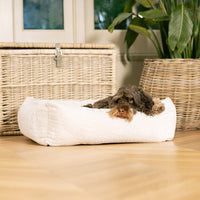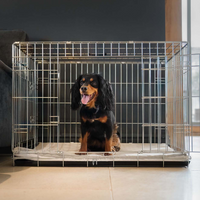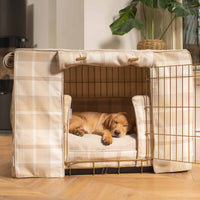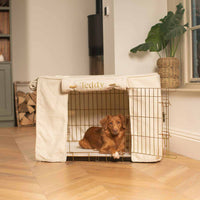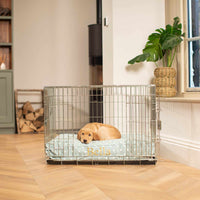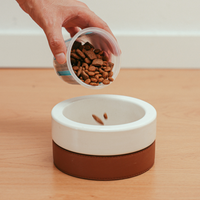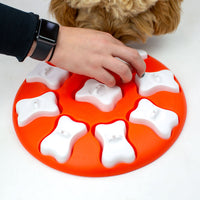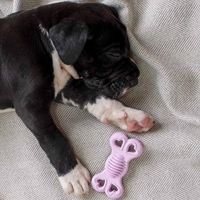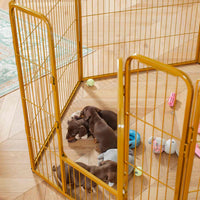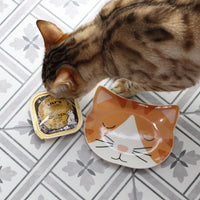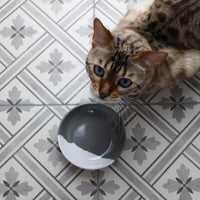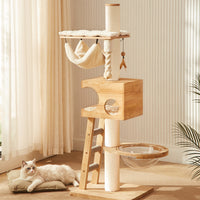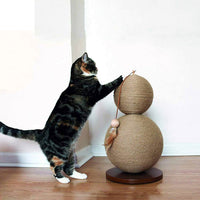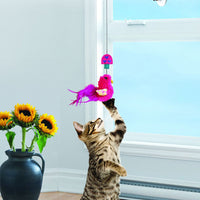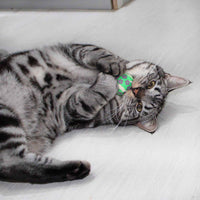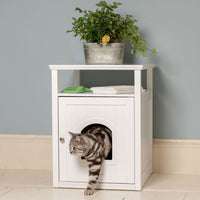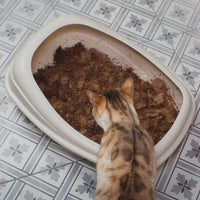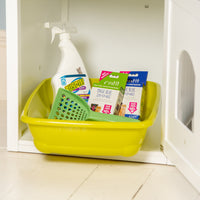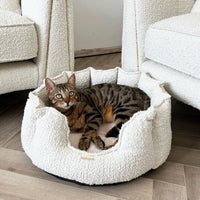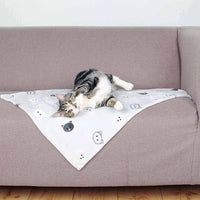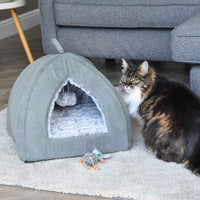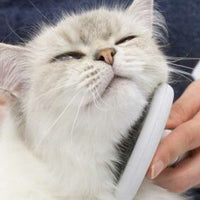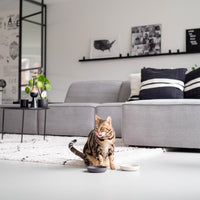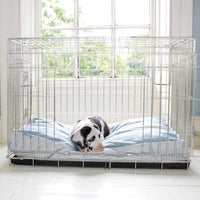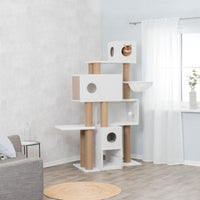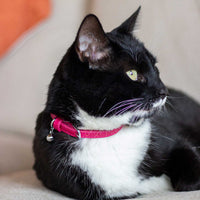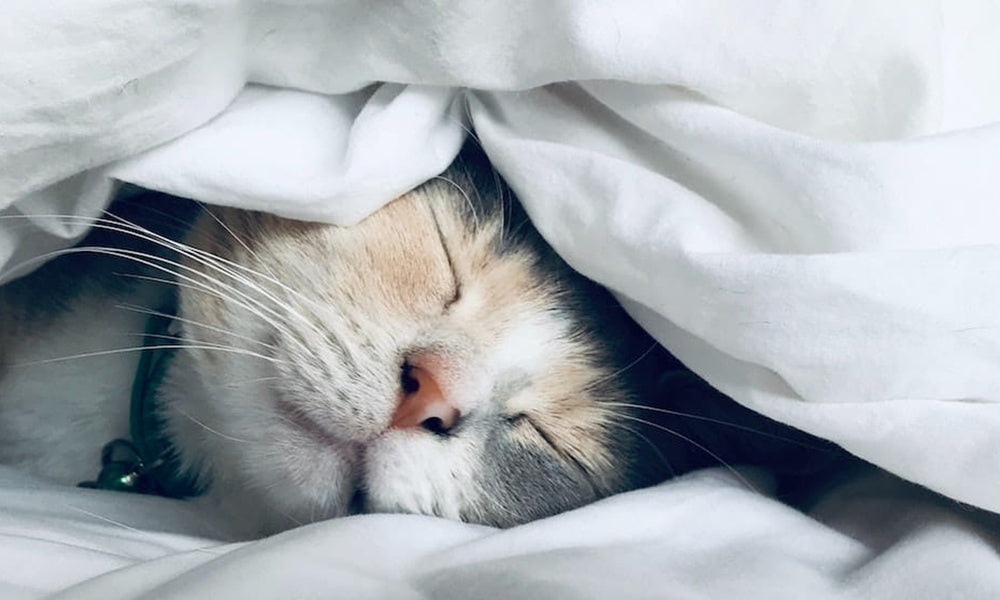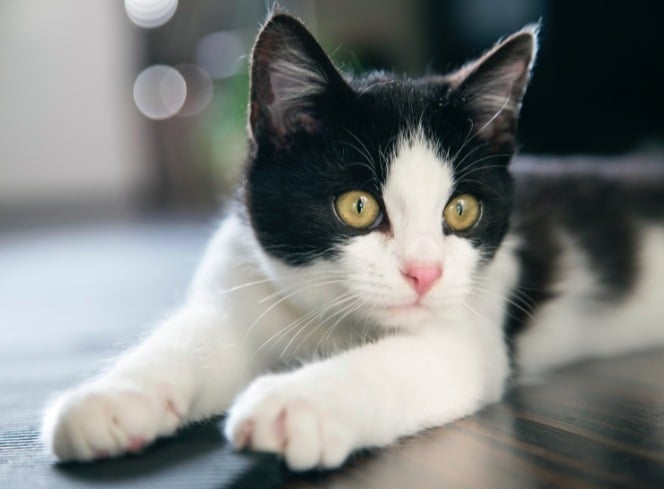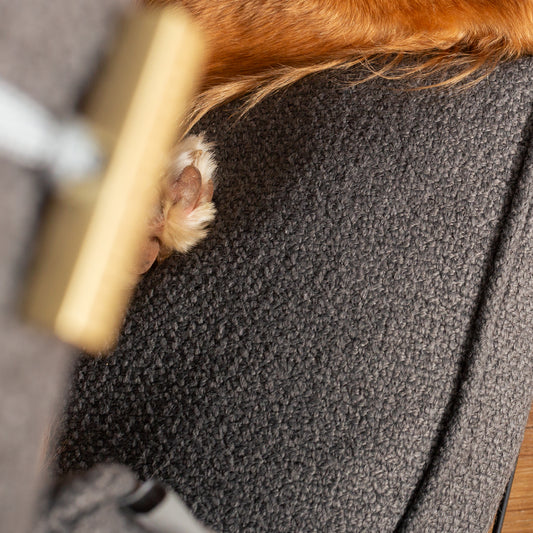Cats tend to be one of the cleanest pets we can share our homes with. They’re usually diligent when it comes to grooming themselves and they pick up litter training really quickly. Sometimes they can develop bad habits though, such as peeing around the home. If your cat urinates on their bed, or yours for that matter, you might wonder why?
In this article we discuss why cats pee in places they shouldn’t and suggest some things you can do to help stop them from doing it.
Why Do Cats Pee On Beds?
There are a number of reasons why your cat might pee on their bed. The most common problem is that your cat has a problem with the litter box. There are a number of reasons your cat might not like the litter tray including the following:
Location - Cats can be fussy creatures and this can be evident in their toilet habits. If the litter tray is in a busy area of the house or is near a noisy appliance for example, then it might not be inviting for them or feel private enough.
You don’t have enough litter boxes - Some cats do not like to pee and poop in the same spot which could cause them to start peeing around the house. Other cats are happy to use one box, but don’t want to share it with other cats. If you have multiple cats, then providing them with a litter tray of their own is ideal. Make sure it is cleaned regularly too as many cats will refuse to use a dirty litter tray.
Your cat doesn’t like the type of litter or litter tray - Your cat may not like using a hooded tray, or they may prefer it. They may even take a dislike to the type of cat litter due to the texture or consistency.
There may also be a health-related reason that your cat stops using their litter tray. Anxiety can cause our pets to act in unusual ways and can be caused by a number of factors, such as a major change in the household, moving home or unusual noises.
There are some more severe health conditions to watch out for too. Cats can be prone to urinary tract and kidney problems which can affect their ability to pee properly. If you find your cat struggling to pee or trying to urinate outside of the litter tray, then you may need to seek veterinary advice to rule out infections or more severe health problems.
Another common reason your cat might choose to pee outside of the litter tray is that they haven’t been neutered or spayed yet. If your cat is intact, males especially are more likely to spray around the house. If this happens you should consider booking an appointment with the vet to have them spayed or neutered. The procedure comes with other health benefits too, so it’s definitely worth doing.
How To Stop A Cat Peeing In Their Bed
If you’ve ruled out any health problems and your cat is still urinating around the house, you will need to work out a way to stop it happening. Getting a cat to stop urinating on their bed, furniture or anywhere else in the house can be tricky and it will take patience and perseverance. There are some key things you can do to encourage them though.
Make the litter tray as inviting as possible
It might take some trial and error to get it just right but ensuring the litter tray is inviting and to your cat’s taste is really important. Try to find a litter and tray style that they prefer, and place it in a private, quiet part of the house that is easy for them to get to when they use it. There should be a separate litter tray for each cat in the house and if you have a very fussy cat you may need to give them two trays – one to poop in and one to urinate in.
Ensure you clean any soiled areas around the home thoroughly
This is probably obvious, but it’s imperative that any soiled areas are cleaned thoroughly. Cats will return to the same spot if it smells of pee, so ensure it is disinfected as soon as possible.
Change the meaning of the places they’re urinating
If your cat get’s confused and starts using their bed, or your bed, as their loo then you need to make them see those areas in a different light. Try playing with them in the area and give them treats so they begin to associate it with food. Cats won’t eat and toilet in the same spot!
Install calming Feliway diffusers
If your cat shows any unwanted behaviours around the home, then we’d suggest installing calming diffusers in their living areas. Ceva make a brilliant range of Feliway products that are designed to calm and relax our feline friends. They can be used in a number of situations too, including noisy events like fireworks night and when they’re due to travel somewhere. Pet Remedy also make some practical calming products such as sprays and wipes that can be used on bedding and in crates to help relieve stress.
Ensure their basic needs are met
In some situations, it only takes a minor adjustment to your cat’s lifestyle to make a big difference to the way they behave. Cats need three essential things - safety, security and stimulation. They need to feel safe and unthreatened in their environment and secure in the fact that they can get away from situations if they need to. Cats like elevated places to hide and a consistent routine. They also need to be stimulated in their home environment. They have a natural need to hunt and chase, so they need cat toys around the home for them to exhibit this behaviour. Sometimes, just tweaking the home environment to make sure all of your cat's needs are met will stop any unwanted behaviours.
Whatever you do, don’t scold your cat. Punishing them will likely only lead to fear and anxiety, rather than solving the issue. Try all of the things we’ve mentioned above and allow a few weeks for your cat to be retrained. If problems persist, you may need to speak to your vet or seek advice from an animal behaviour specialist.
With time and patience, your cat will soon be retrained and using their litter tray properly - you’ll have a happy, content cat and a clean house once again!


